第474章 VOLUME VII(3)
The remaining point of your letter is a protest against any person offering to vote being put to any test not found in the laws of Maryland. This brings us to a difference between Missouri and Maryland. With the same reason in both States, Missouri has, by law, provided a test for the voter with reference to the present rebellion, while Maryland has not. For example, General Trimble, captured fighting us at Gettysburg, is, without recanting his treason, a legal voter by the laws of Maryland. Even General Schenck's order admits him to vote, if he recants upon oath. I think that is cheap enough. My order in Missouri, which you approve, and General Scherick's order here, reach precisely the same end. Bach assures the right of voting to all loyal men, and whether a man is loyal, each allows that man to fix by his own oath. Your suggestion that nearly all the candidates are loyal, I do not think quite meets the case. In this struggle for the nation's life, I cannot so confidently rely on those whose elections may have depended upon disloyal votes. Such men, when elected, may prove true; but such votes are given them in the expectation that they will prove false.
Nor do I think that to keep the peace at the polls, and to prevent the persistently disloyal from voting, constitutes just cause of offense to Maryland. I think she has her own example for it. If I mistake not, it is precisely what General Dix did when your Excellency was elected Governor.
I revoke the first of the three propositions in General Schenek's General Order No. 53; not that it is wrong in principle, but because the military, being of necessity exclusive judges as to who shall be arrested, the provision is too liable to abuse. For the revoked part I substitute the following:
That, all provost-marshals and other military officers do prevent all disturbance and violence at or about the polls, whether offered by such persons as above described, or by any other person or persons whomsoever.
The other two propositions of the order I allow to stand. General Schenek is fully determined, and has my strict orders besides, that all loyal men may vote, and vote for whom they please.
Your obedient servant, A. LINCOLN.
TO J. H. HACKETT
[Private.]
EXECUTIVE MANSION, WASHINGTON, November 2, 1863.
JAMES H. HACKETT.
MY DEAR SIR:--Yours of October 22d is received, as also was, in due course, that of October 3d. I look forward with pleasure to the fulfillment of the promise made in the former to visit Washington the following winter and to "call."
Give yourself no uneasiness on the subject mentioned in that of the 22d. My note to you I certainly did not expect to see in print, yet I have not been much shocked by the newspaper comments upon it.
Those comments constitute a fair specimen of what has occurred to me through life. I have endured a great deal of ridicule, without much malice; and have received a great deal of kindness not quite free from ridicule. I am used to it.
TELEGRAM TO W. H. SEWARD.
WAR DEPARTMENT, WASHINGTON CITY, November 3, 1863.
HON. W. H. SEWARD, Auburn, N. Y.:
Nothing new. Dispatches up to 12 last night from Chattanooga show all quiet and doing well. How is your son?
A. LINCOLN.
TELEGRAM TO GENERAL MEADE
EXECUTIVE MANSION, WASHINGTON, November 3, 1863.
MAJOR-GENERAL MEADE, Army of Potomac:
Samuel Wellers, private in Company B, Forty-ninth Pennsylvania Volunteers, writes that he is to be shot for desertion on the 6th instant. His own story is rather a bad one, and yet he tells it so frankly, that I am somewhat interested in him. Has he been a good soldier except the desertion? About how old is he?
A. LINCOLN.
TELEGRAM TO GENERAL MEADE.
EXECUTIVE, MANSION
WASHINGTON, D. C., November 5, 1863.
MAJOR-GENERAL MEADE, Army of Potomac:
Please suspend the execution of Samuel Wellers, Forty-ninth Pennsylvania Volunteers, until further orders.
A. LINCOLN.
TELEGRAM TO GENERAL A. E. BURNSIDE.
WAR DEPARTMENT, WASHINGTON, November 9, 1863.4 P.M.
MAJOR-GENERAL BURNSIDE, Knoxville, Tenn.:
Have seen dispatch from General Grant about your loss at Rogersville.
Per contra, about the same time, Averell and Duffle got considerable advantage of the enemy at and about Lewisburg, Virginia: and on Saturday, the seventh, Meade drove the enemy from Rappahannock Station and Kelly's Ford, capturing eight battle-flags, four guns, and over 1800 prisoners, with very little loss to himself. Let me hear from you.
A. LINCOLN.
TELEGRAM TO GENERAL G. G. MEADE.
WASHINGTON, November 9, 1863 7.30 P.M.
MAJOR-GENERAL MEADE:
I have seen your dispatches about operations on the Rappahannock on Saturday, and I wish to say, "Well done!" Do the 1500 prisoners reported by General Sedgwick include the 400 taken by General French, or do the Whole amount to 1900?
A. LINCOLN.
ORDER CONCERNING THE EXPORT OF TOBACCO PURCHASED BY FOREIGN NATIONS.
EXECUTIVE MANSION, WASHINGTON, November 10, 1863.
In consideration of the peculiar circumstances and pursuant to the comity deemed to be due to friendly powers, any tobacco in the United States belonging to the government either of France, Austria, or any other state with which this country is at peace, and which tobacco was purchased and paid for by such government prior to the 4th day of March, 1861, may be exported from any port of the United States under the supervision and upon the responsibility of naval officers of such governments and in conformity to such regulations as may be presented by the Secretary of State of the United States, and not otherwise.
ABRAHAM LINCOLN.
TELEGRAM TO GENERAL SCHOFIELD.
WAR DEPARTMENT, WASHINGTON, D. C., November 10, 1863.
GENERAL SCHOFIELD, Saint Louis, Mo.:
I see a dispatch here from Saint Louis, which is a little difficult for me to understand. It says "General Schofield has refused leave of absence to members in military service to attend the legislature.